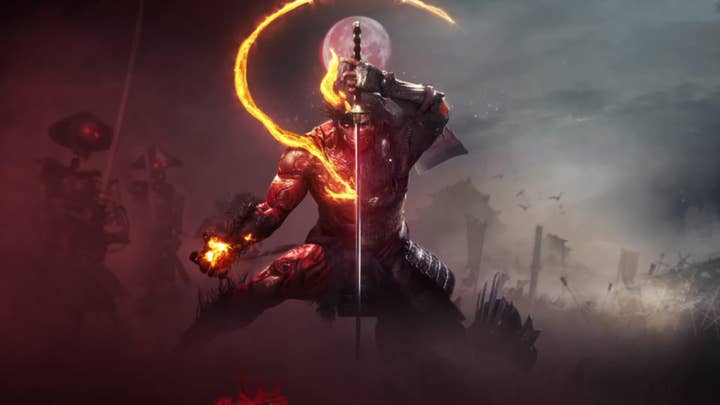Koei Tecmo found global success by focusing on its Japanese identity
CEO Hisashi Koinuma on being trusted with big IPs, making an asset of the firm's Asian identity, and its goal of making a 5m-selling original IP
I meet Koei Tecmo CEO Hisashi Koinuma on a day that's something of a quiet milestone for his company. Years of growth -- mostly organic, aside from Koei's acquisition of Tecmo a decade ago -- has seen Koei overspill its distinctive headquarters buildings in Hiyoshi, a university suburb in the commuter belt sandwiched between Tokyo and Yokohama. Today is the ribbon cutting ceremony for a new building in the Minato-Mirai waterfront district of Yokohama. Less than 20 minutes to the south by train, it will provide space for 1600 staff -- much-needed room for both expansion and consolidation.
A glance over the past few years of the Koei Tecmo history makes it easy to understand why it's outgrowing its existing facilities, which are located just a stone's throw from the prestigious Keio University, alma mater of Koei's founder Yōichi Erikawa and origin of its spoonerism name. Where both Koei and Tecmo had successes in their own right in the past -- Koei's historical action and strategy games such as Dynasty Warriors and Nobunaga's Ambition; Tecmo's Ninja Gaiden and Dead or Alive -- the past few years have seen a string of collaborations on some of the industry's most valuable IPs, includng Bandai's Gundam, Nintendo's Zelda and Fire Emblem, and Atlus' Persona. Moreover, it's seen Koei Tecmo flexing its muscle in original IP development, with samurai action title Nioh becoming the company's biggest hit to date.
"We now have a special reputation for working well with other companies"
Koei Tecmo's collaborations stem from a single original experiment: combining Bandai's enduring Gundam franchise with the gameplay style of the Dynasty Warriors. "The Dynasty Warriors game system was really popular in Japan at that time and we thought if we could fit different themes to that system, it could be really interesting," explains Koinuma. "That first collaboration, Dynasty Warriors: Gundam, was a hit, and success begets success -- other game makers started to approach us, asking if we'd work with them in the same way we had for Dynasty Warriors: Gundam."
Perhaps the most remarkable of the subsequent collaborations were those with Nintendo, which entrusted Koei Tecmo first with the Zelda IP for Hyrule Warriors, and then with the Fire Emblem IP for Fire Emblem Warriors. "Being trusted with these big brands has been important," says Koinuma. "I think we now have a special reputation for working well with other companies... These collaborations have increased our reputation and image, and have given us a chance to establish ourselves as a company that can be trusted with big franchises."
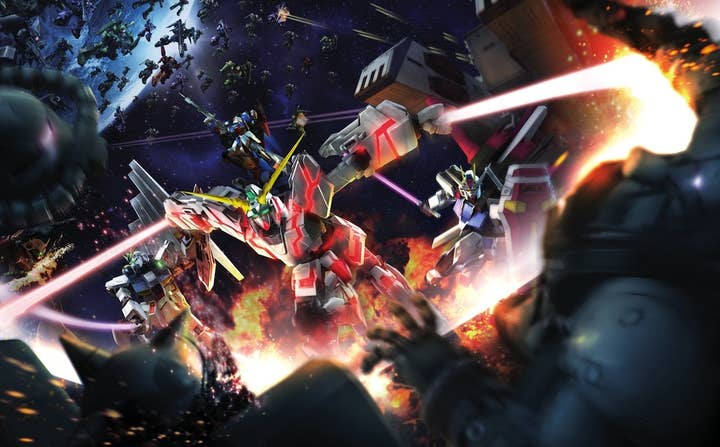
Working on such high-profile franchises has been of enormous benefit to Koei Tecmo, but balancing that work with Koinuma's desire to see his company produce more of its own IP hasn't always been easy. "We do have an ideal, which is that the company should release one major game each year based on our own IP -- that's the ideal, but the reality doesn't always match," he explains. "We're fortunate to be able to work with other companies in the way we do and sometimes it's necessary to prioritise those projects.
"Also, from a management perspective, when you work on a game with an established IP, to some degree there's already a market for that game and you can assume it will lead to higher sales. When you create a brand new IP, there's always a chance of the worst case scenario where you don't sell any copies at all. It's very high risk, and we need to strike a balance where we can take those risks but still know that, even if something goes wrong, the company will be okay. As we increase the number of reliable, successful titles we release, it will be great if we can become the kind of company that takes on the challenge of releasing new IP every year as well."
"We do have an ideal, which is that the company should release one major game each year based on our own IP"
That ambition is expressed clearly in the company's financial statements, which reveal a target of releasing a game based on self-owned IP that reaches five million unit sales. Nioh, an action role-playing title set in Japan's warring states era, has been a major step along the way -- not only a big confidence boost for the company, but potentially a way to level up its business position as well.
"Working with other companies, we've created games that sold over two million copies quite a few times, but now we've got our own original IP title that's sold three million copies -- that's been really great for us," says Koinuma. "The influence of it is really big. It's not just what it shows our players and staff, but it also has a big economic impact, because institutions like banks look at us and say, oh, you've become the kind of company which can do this."
Koinuma's throwaway reference to how banks perceive the company speaks to a deeper truth -- that until its recent growth spurt, and even now to some degree, Koei Tecmo has been a pretty small company compared to many of its rivals and partners in Japan. The firm has made a number of decisions down the years which have run against the grain of what other Japanese publishers have been doing. In the process it has sometimes seemed to avoid expensive pitfalls that ensnared those other firms, but to hear Koinuma tell it, much of that strategy has been directed by the necessity of finding a way to compete as a smaller company lacking its rivals' deep pockets and broad resources.
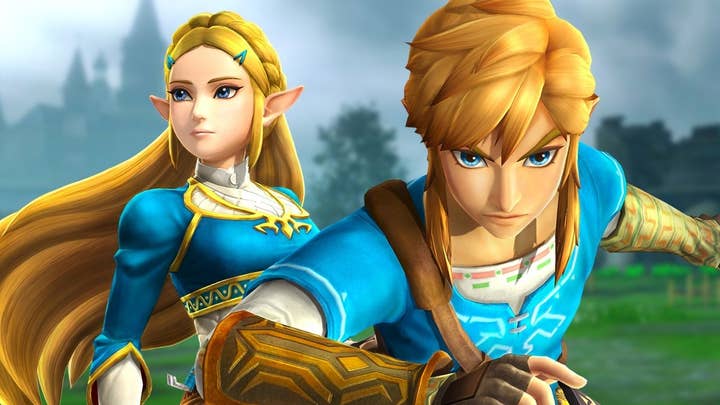
One notable example is the overseas expansion strategy pursued by many Japanese publishers ten to 15 years ago, when multiple firms went on acquisitive spending sprees, buying western studios and even publishers with the aim of making more games tailored for western tastes. Koei Tecmo instead doubled down on its identity as an Asian company, and more specifically a Japanese company, steeping its games in the region's history and aesthetics.
"The thing is that ten to 15 years ago we were a very small firm," explains Koinuma. "The idea of becoming a major company in the west is a huge aspiration -- it didn't seem like we could compete with the other companies doing that. Rather than joining some kind of impossible contest, we felt like we had something special of our own in terms of Japanese culture, Asian culture. If we could be a company developing games which reflected that special characteristic, using that to create our own path rather than impossibly following down the same path as other companies, that would be a way to progress -- and it would make our players happy too."
"Now we've got our own original IP title that's sold three million copies -- that's been really great for us"
"I guess you could say that with this approach we wouldn't 'win', but we also wouldn't 'lose' -- we could become a place where we brought together people with the same background and the same cultural ideas. And rather than trying to compete with everyone else going in the same direction, we could develop into a company where Japan's special characteristics emerge from our creativity. We felt that we could make a strength of our games being made in Japan."
This strategy may have been one forced upon Koei Tecmo to some degree by the company's circumstances, but its timing was fortuitous. Games like Dynasty Warriors and Nioh have benefitted from rising interest in Japanese culture across the western world over the past decade. Meanwhile, the company's focus on its Asian cultural roots has also borne fruit in China, a market that has proved notoriously difficult for many games companies to enter successfully -- but one where Koei's background has given it something of a headstart.
"Honestly, when you go to China you find that Koei is pretty famous," says Koinuma, noting that pirated editions of classic Koei titles based on Chinese histories like Romance of the Three Kingdoms were in wide circulation there three decades ago. "Thirty years ago you had Chinese players enjoying games about Chinese history, made by a Japanese developer -- a lot of people from that generation who are now working in China's game companies grew up playing our games. To an extent this makes it easier for us to start doing business with Chinese companies, because there's already a great awareness of who we are."
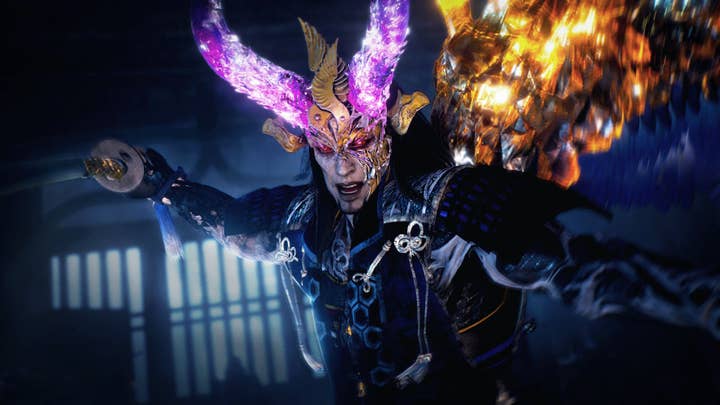
While Koei Tecmo is largely known for its console games in the west, in both China and Japan the company has seen significant success from mobile. Unlike many other Japanese publishers, it didn't make a dramatic shift to mobile early on. If anything, it was something of a latecomer to this side of the market, which Koinuma attributes to the company being focused on its PC online games at that point in time. Console titles remain the core of Koei Tecmo's business, but the size of the mobile game market in Asia -- which dwarfs the opportunity for console titles -- is too big to be ignored.
"We felt that we could make a strength of our games being made in Japan"
"[The mobile market] is big in the west as well, but the scale is different," explains Koinuma. "If you compare the ratio in the sizes of the packaged game market versus the mobile game market, mobile games' market share in Japan is extremely high... Ultimately, the packaged game market in Japan has become quite small -- it's less than 10% of the global market now -- so our packaged game sales are focused in the west."
The relative popularity of mobile games may be uniform across many Asian markets, but it would be a mistake to assume that Koei Tecmo's success in these markets has been as simple as translating its Japanese mobile titles and launching them in China. "[Players' tastes] are completely different," says Koinuma. "Perhaps it's because Japan is an island nation and China is on the continent, but when it comes to games, they really want to compete and win against each other -- if you look at their game systems, a lot of them are designed so that you can spend money and get stronger in the game, and they really seem to enjoy that.
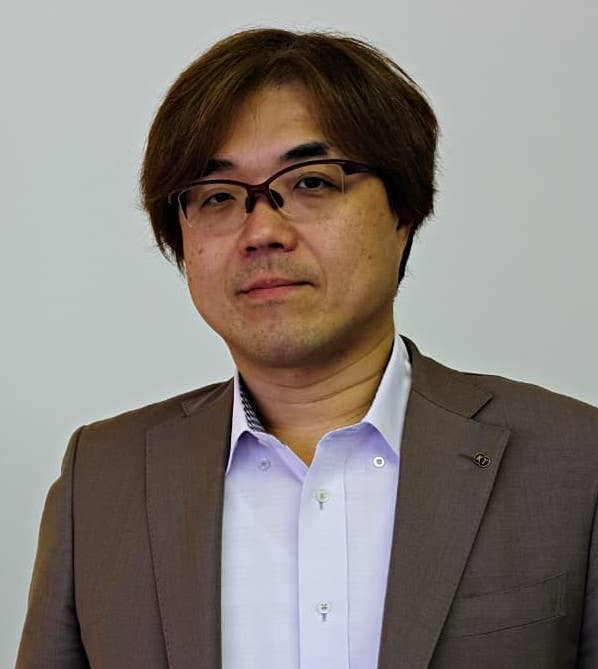
"On the other hand, Japanese players prefer lottery or 'gacha' style systems, where you pay some money and don't know exactly what you'll get in return. Chinese players want to spend money directly to get stronger and win competitions. Western players are different again -- they prefer games where you can play and enjoy the game itself without paying much money. So, if we're going to launch in different markets, we definitely need to tune how the monetisation works in order to match the expectations of different cultures."
The market is rapidly evolving, though, and Koinuma warns that companies need to keep abreast of players' changing tastes. "Even in Japan, there's been a kind of globalisation of players' tastes -- players here are becoming more like those elsewhere in the world," he explains. "The systems which Chinese players prefer are becoming popular here, to some extent at least. It used to be that that kind of monetisation would be totally impossible here, but now it's pretty successful... Overall, it seems like the mobile market itself is becoming more global."
Much of Koei Tecmo's recent success can probably be attributed to this kind of careful attention to trends among players -- from understanding the different demands of mobile players in different regions, to recognising the market's appetite for distinctly Asian cultural influences in console games. Koinuma balances this kind of big-picture view of the market with an unusual level of attention to detail on the development process; he is an anomaly among CEOs in that he retained his role as a producer on key titles, including Nioh, even after being promoted to lead the company.
Although the lion's share of his time is spent on the CEO role -- Koinuma estimates that it's around an 80:20 split -- he speaks enthusiastically about how new tools for creating CG models and resources have changed the workflow of game production and helped to ensure that the next generation of consoles won't cause a step-change in development costs, a depth of insight gained from remaining close to the coal-face of game development.
Whether Koinuma will be able to remain so closely involved in development as Koei Tecmo continues its expansion is an open question. He indicates that the producer role is one he would be willing to give up, which is understandable given the number of plates that the company is currently keeping spinning -- a mixture of console, mobile and online games targeted at multiple different territories, not to mention the challenge of maintaining such an enviable set of collaborations with major industry partners.
In the midst of it all lies the company's next big target: creating a five million selling self-owned hit title. On the strength of the past few years of Koei Tecmo's track record, it's an ambition that now seems well within reach.
